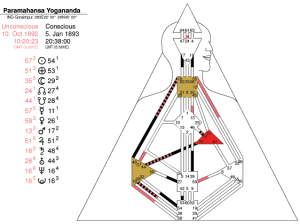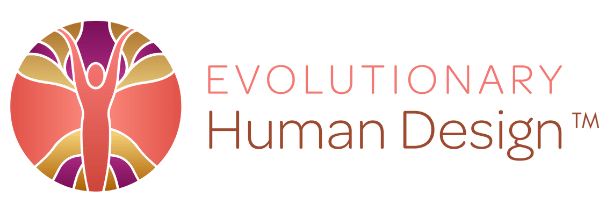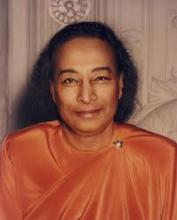IN THE 19TH CENTURY, AT A TIME WHEN the “Sun never set on the British Empire,” (because, it was joked, God would not trust an Englishman in the dark), Britain had trade and governing routes into all corners of the globe; the beginning of world communications was happening! In one place within the reach of Britain’s rule and trading was India, an enormously divers country, comprising many different peoples, languages, religions, spirituality and treasures. The British way of governing colonies was through establishing bureaucracy and rule systems so that trading was continued without interruptions. In India, however, they found a people who had a very different way of experiencing life than the British. One of the famous English authors of the 1800’s, Rudyard Kipling, (the author of the Jungle Book and many other works), wrote that “East is East, and West is West, and never the twain will meet….” implying that the Eastern way of life would never find full comprehension in the West, and vice versa. Times have progressed, and India, the largest democracy in the world, has caught onto “Western ways” in many areas including Western medicine, computer software, nuclear research, space exploration, and banking. Into the West have come many influences from India, including Yoga, Ayurvedic medicine, Vedic Astrology, Indian Cuisine, and most significantly, Meditation. One of the first Indian teachers to travel to the West in modern times was Paramahansa Yogananda. A literal translation of his name is, The Great Swan, Union of Bliss. In Indian legend, the Great Swan undertakes a migration into the high country over the Himalaya Mountains, symbolizing, in human terms, a passage into the highest achievements in personal consciousness.

In Design, there are five different expressions of interaction in life,
what we call “Types,” and Yogananda has the Type of a “Manifestor.” In his Design chart, he has (definition) connection from the Heart Center, (the little red triangle Center) through the Spleen Center, (the brown triangle Center) to the Throat Center, (the brown square Center). Manifestors, particularly those who are empowered from the Heart Center, are designed to “push” things, to “make them happen.” Strangely, in this world where we are all encouraged to “go out and make things happen,” that is, to manifest, only about ten percent of people are actually empowered in their own Design to do so. The vast majority of us are “designed” to “wait,” to be called in ways particular to our design, before we get involved in manifesting things in our life. It is not as though we lack the ability to recognize what can be done, but rather we are to be guided by direct interaction with Existence into what we are really here to fulfill in our lives. Too much of our lives can be spent on “doing” rather than “being,” leaving us continuously occupied, but often wondering if there is any purpose to our life at all. Yogananda is one of those rare beings who is designed “to do,” and necessarily, as a manifestor had an enormous responsibility to “do” appropriately, in accordance with his inner intelligence and intuitive guidance, as literally a stranger in a strange land. The “Willful” Manifestor The Heart Center is the Center relating to willpower. Willpower can express itself in four different ways, through the four different Gates within the Center : through control (21), through community interactions (40), through accumulation (26) and through awakening shock (51). From his defined Heart Center, Yogananda had access to his Spleen Energy through the Channel the 44 – 26, Enterprise, and the Channel of Conveying Creative Concepts. This Channel, though very powerful through its origin in the Center of Willpower, connects into the “Feelgood” Center, the Spleen. It represents transmission of Willfulness into the Center relating to our sense of Health and Wellbeing. This Channel accumulates an inherent wish to direct heartfelt intent towards an appreciation of potential benefits to our wellbeing. People with this Channel defined in their Design are very open to bringing improvements into many areas of our lives, particularly in areas relating to having our physical needs met. Yogananda had a great gift for pointing out to people the true needs that are closest to our hearts, and how to accept those needs in order to transcend many unnecessary diversions in our lives. From the Spleen Center to the Throat Center, Yogananda has the 16 – 48, the Channel of Talent. The Channel is activated by his conscious planet Saturn at the Spleen Center (48), relating to a life’s work of restructuring his personal gifts. At the Throat Center (16) it is activated by his conscious and unconscious Neptune and Pluto, and his ability to instantly recognize (or sometimes overlook) potentially viable endeavors of both spiritual and transformative value that can be related into the material world. Open Centers In most Design charts, there are Centers that are colored white. These Centers are either “open,” or undefined.” An open Center is one that does not have any gates activated within it. An open Center has the potential to exactly mirror back the energies related to that Center towards anyone who has that Center defined in their own Design. Alternatively, an open Center can become overwhelmed by the energies emanating from others, especially those who have that Center defined in their own Design. In Yogananda’s Design, he has open Crown and Emotional Centers. The Crown is our Center for Inspiration, and anyone with an open Crown Center can find inspiration in almost anything life offers. How does someone know whether an inspiration is appropriate for them to pursue? By following their own decision making process, which in Yogananda’s Design is through his spontaneous intuition, instinct and sense of taste, which are the senses relating to his defined Spleen Center. Yogananda also has an open Emotional Center giving him a potentially “uninvolved” emotional nature. He could appear quite cool to those with defined Emotional Centers, who continuously cycle up and down in their emotional nature. Yogananda would probably find himself puzzled and even concerned as to why people would get so emotionally entangled and excited about events in their lives. On the other hand, when surrounded by people with defined and excitable Emotional Centers, he could find himself highly charged emotionally, unable to control the feelings he experienced. The Emotional Center is the doorway to Spirit. It is clear that Yogananda had a very close alignment with Spirit by being completely trusting and open Emotionally to his environment. So long as Yogananda remained true to his own nature, his presence would provide reflection for those around him, reflecting the nature of their own spirituality through his open Emotional Center. Undefined Centers An undefined Center, also colored white, has gates activated within it, but does not have a completely activated Channel connecting it to another Center. Undefined Centers can either reflect back their own energetic nature to the world, adding the “flavor” of the activated gates, or, they can absorb the energies of those with defined Centers and become conditioned by those people’s Designs. Very few people have no open or undefined Centers in their Designs, and consequently there needs to be a clear understanding of how you relate to the world from these Centers. It all comes down to detachment. Can you allow yourself to be detached from the interplays that happen in your undefined and open Centers? In Yogananda’s Design, he has an undefined Mind Center, affording him the great ability to clarify thoughts for others. His activated Gates 17 and 11, gave him access to the vast collective thought train through openness and attunement. His activated Gate 24 (North Node), gave him access to a deep level of mental rationalizing and universal comprehension. He has an undefined Self Center, giving him the ability to play many roles in his lifetime, appearing as “all things to all people.” Very few Western people appreciated what was involved in relating to an Indian Sage in the early 1900’s. The activated Gate 13, gave him a constant reminder that he would always have to rely on his own resources in his life journey. His undefined Sacral Center gave him a fascination for life and a readiness to commit to anything life offered with his Gate 29. It also gave him a readiness for generosity in his caring for others in his Gate 27 (North Node), when he appreciated the nature of the land in which he found himself, in a country desperately seeking its own identity while being recognized as the leading world power. His activated Gate 59 gave him great intimacy with those around him. His undefined Root Center, containing his Sun activation in Gate 54, the Gate of Ambition, both worldly and spiritual, and his Earth activation in the Gate 53, of New Beginnings, allowed him to get other people motivated simply through his presence. In conclusion By simply reading the names of his defined Channels, the 16 – 48, (Talent) and the 44 – 26, (Enterprise), Yogananda’s Human Design can describe him as having a “Talent for Enterprise.” He brought with him a conscious ability to communicate alternative and uplifting ways of living. Coming from his spiritual heritage in India, the ways of living that he espoused transmitted an awareness that each individual can naturally acknowledge and live a more openly spiritual life, as a unique, self-realized Being. Manifestors are potentially highly energized people, and it would be impossible to ignore Yogananda’s presence if one met him. Since he was given such direct instruction by his Spiritual Master to build something in the West, he exerted tremendous efforts to make this come about, spending much time founding, with the assistance of helpers and financial backers, the Self-Realization Fellowship. The Temple that Paramahansa Yogananda created in Encinitas, California, still holds the tranquility and beauty that this amazing man loved and lived, and the view out across the Pacific Ocean towards his Beloved India.



